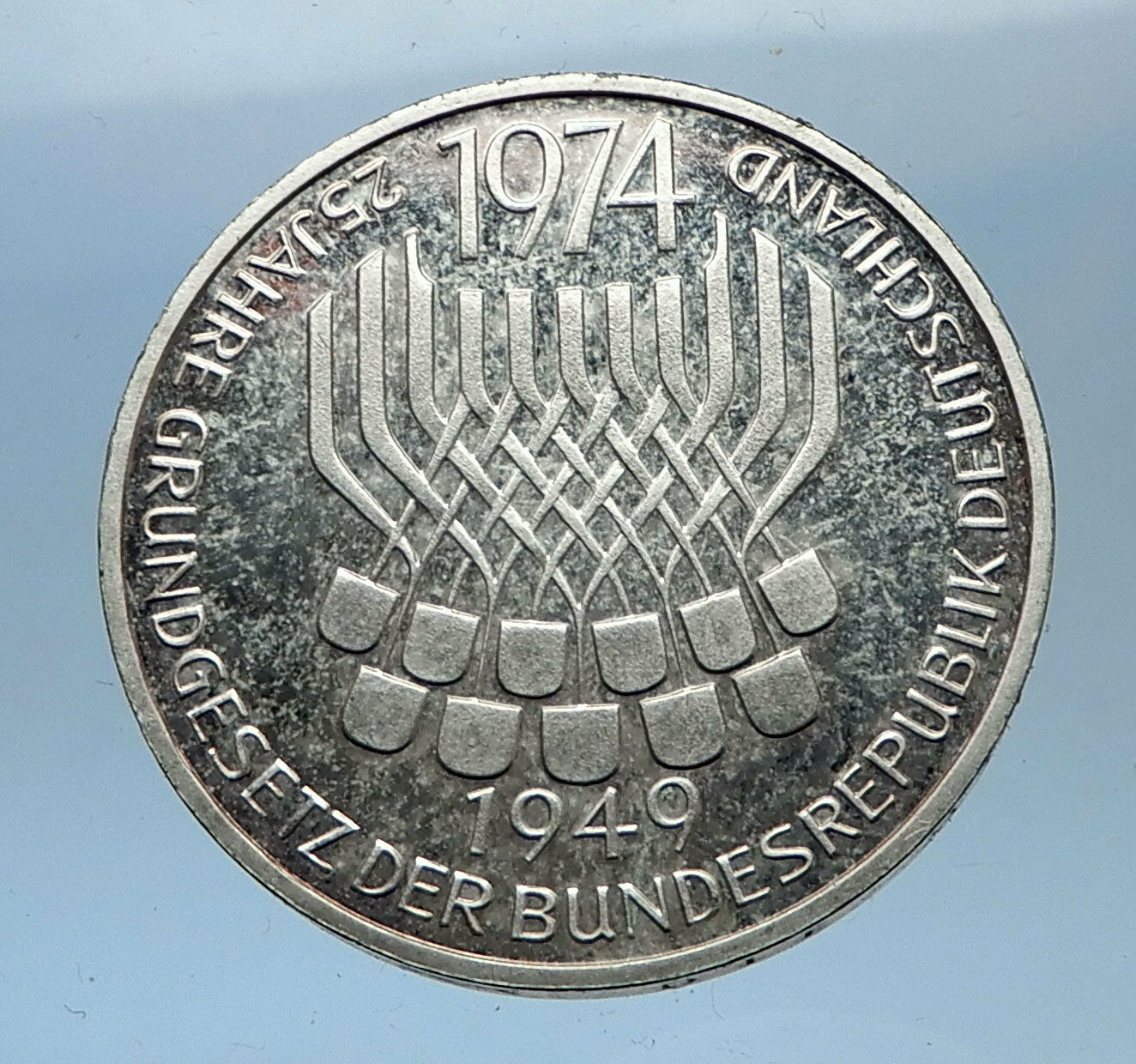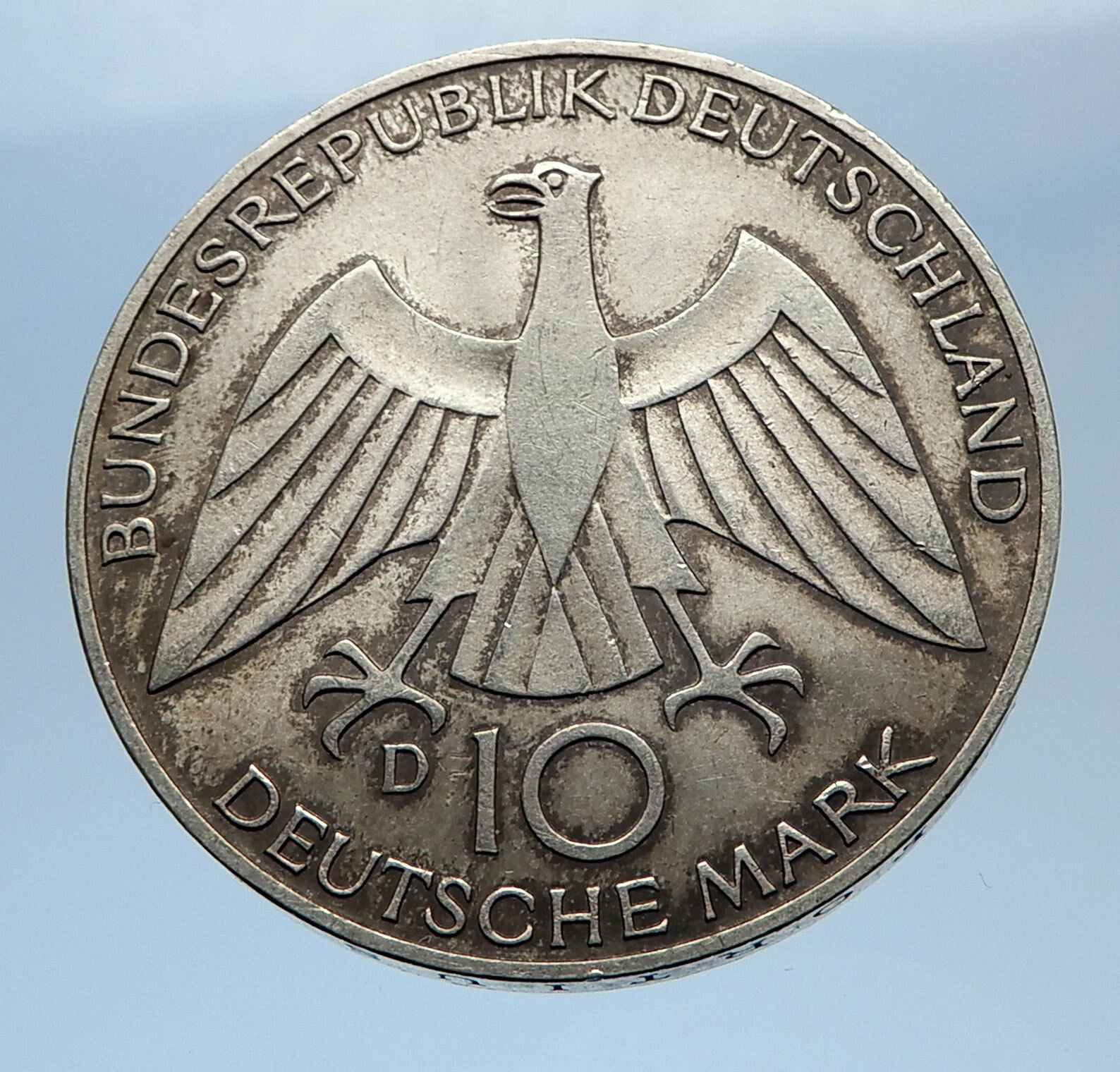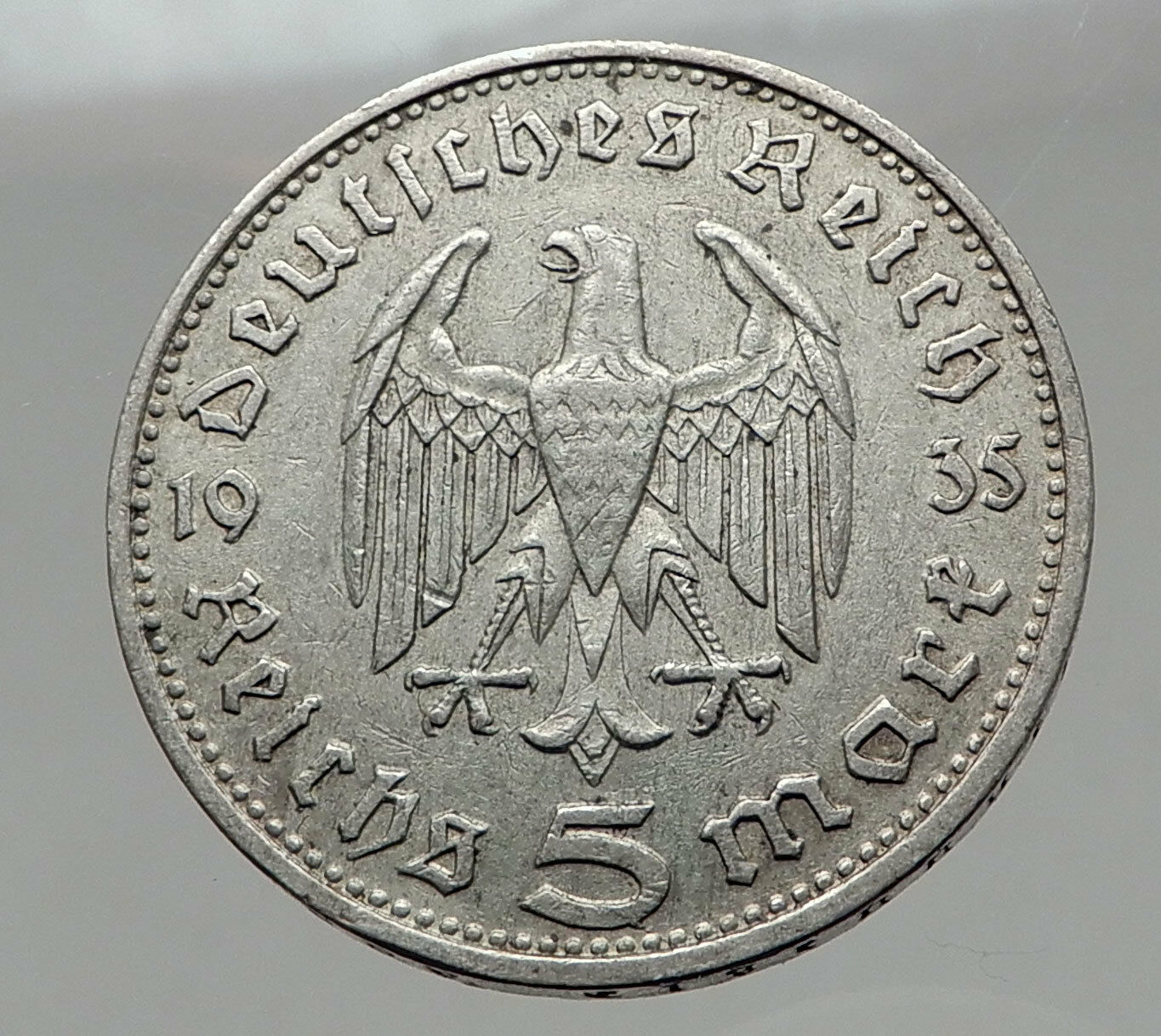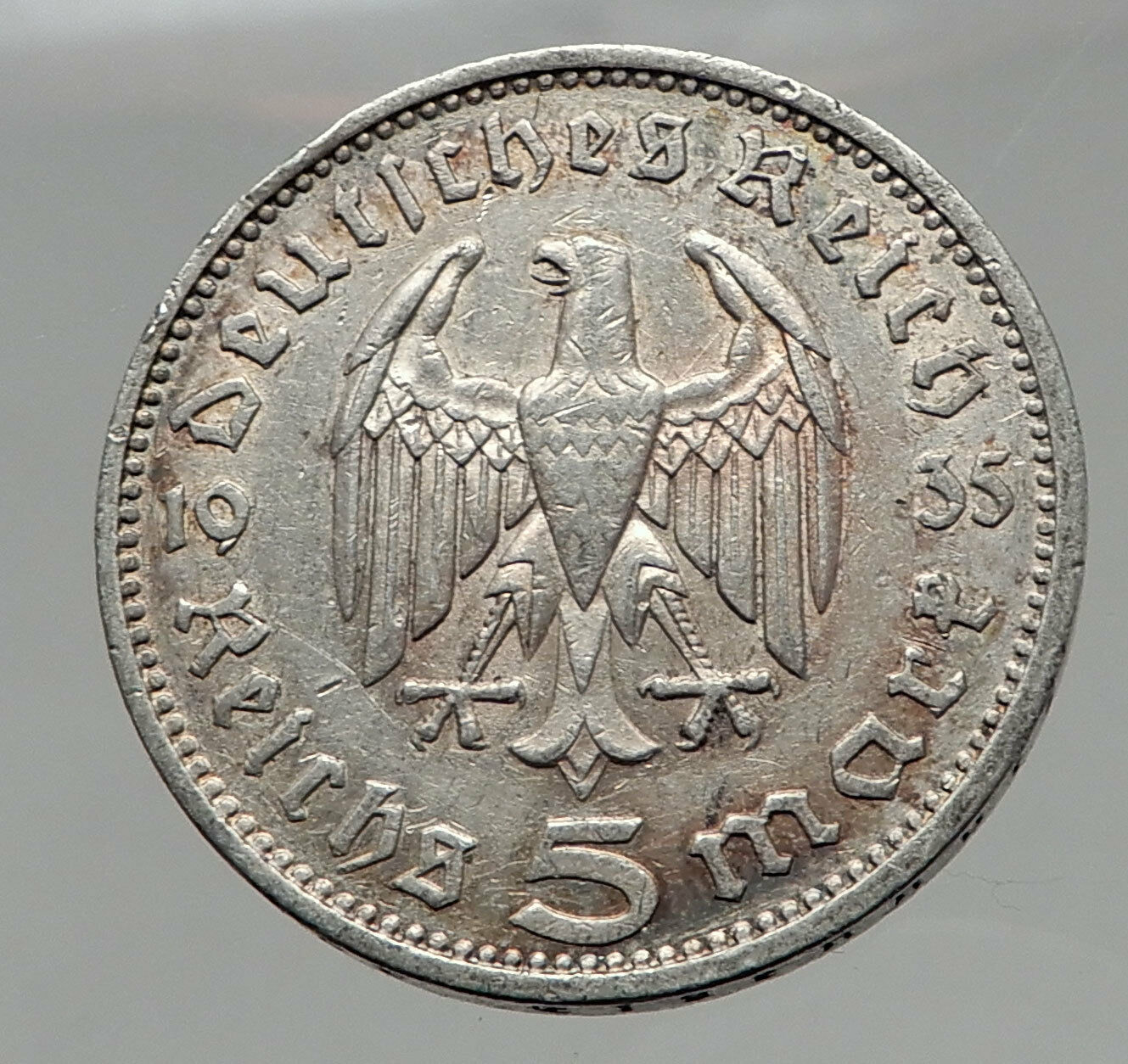|
Germany – FIFA 2006 Soccer Football World Cup
2004 Silver 10 Euro 32mm (18.09 grams) 0.925 Silver (0.5319 oz. ASW)
Reference: KM# 229
BUNDESREPUBLIK DEUTSCHLAND 2004 10 EURO, Stylized round eagle above denomination.
FIFA FUSSBALL – WELTMEISTERSCHAFT DEUTSCHLAND 2006 -, Soccer football orbiting around Earth, forming a ring.
Edge Lettering:
DIE WELT ZU GAST BEI FREUNDEN A. D. F. G. J.
You are bidding on the exact item pictured, provided with a Certificate of Authenticity and Lifetime Guarantee of Authenticity.
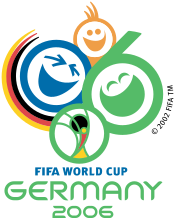 The 2006 FIFA World Cup was the 18th FIFA World Cup, the quadrennial international football world championship tournament. It was held from 9 June to 9 July 2006 in Germany, which won the right to host the event in July 2000. Teams representing 198 national football associations from all six populated continents participated in the qualification process which began in September 2003. Thirty-one teams qualified from this process, along with the host nation, Germany, for the finals tournament. It was the second time that Germany staged the competition (the first was in 1974 as West Germany), and the tenth time that it was held in Europe. The 2006 FIFA World Cup was the 18th FIFA World Cup, the quadrennial international football world championship tournament. It was held from 9 June to 9 July 2006 in Germany, which won the right to host the event in July 2000. Teams representing 198 national football associations from all six populated continents participated in the qualification process which began in September 2003. Thirty-one teams qualified from this process, along with the host nation, Germany, for the finals tournament. It was the second time that Germany staged the competition (the first was in 1974 as West Germany), and the tenth time that it was held in Europe.
Italy won the tournament, claiming their fourth World Cup title. They defeated France 5-3 in a penalty shoot-out in the final, after extra time had finished in a 1-1 draw. Germany defeated Portugal 3-1 to finish in third place. Angola, Ghana, Ivory Coast, Trinidad and Tobago, and Togo made their first appearances in the finals. It was also the first appearance of Serbia and Montenegro under that name; they had previously appeared in 1998 as Yugoslavia.
The 2006 World Cup stands as one of the most watched events in television history, garnering an estimated 26.29 billion times viewed, compiled over the course of the tournament. The final attracted an estimated audience of 715.1 million people.
The vote to choose the hosts of the 2006 tournament was held in July 2000 in Zürich, Switzerland. It involved four bidding nations after Brazil had withdrawn three days earlier: Germany, South Africa, England and Morocco. Three rounds of voting were required, each round eliminating the nation with the fewest votes. The first two rounds were held on 6 July 2000, and the final round was held on 7 July 2000, which Germany won over South Africa.
In 2006, Germany had a plethora of football stadia that satisfied FIFA’s minimum capacity of 40,000 seats for World Cup matches. The still-standing Olympiastadion in Munich (69,250), the venue for the 1974 final match was not used for the tournament, even though FIFA’s regulations allow one city to use two stadia. Düsseldorf’s LTU Arena (51,500), Bremen’s Weserstadion (43,000) and Mönchengladbach’s Borussia-Park (46,249) were also not used.
Twelve stadia were selected to host the World Cup matches. During the tournament, many of them were known by different names, as FIFA prohibits sponsorship of stadia unless the stadium sponsors are also official FIFA sponsors. For example, the Allianz Arena in Munich was known during the competition as FIFA World Cup Stadium, Munich (German: FIFA WM-Stadion München), and even the letters of the company Allianz were removed or covered. Some of the stadia also had a lower capacity for the World Cup, as FIFA regulations ban standing room; nonetheless, this was accommodated as several stadia had a UEFA five-star ranking. The stadia in Berlin, Munich, Dortmund and Stuttgart hosted six matches each, while the other eight stadia hosted five matches each.
 Germany, officially the Federal Republic of Germany, officially the Federal Republic of  Germany is a federal parliamentary republic in western-central Europe. It includes 16 constituent states and covers an area of 357,021 square kilometres (137,847 sq mi) with a largely temperate seasonal climate. Its capital and largest city is Berlin. With 81 million inhabitants, Germany is the most populous member state in the European Union. After the United States, it is the second most popular migration destination in the world. Germany is a federal parliamentary republic in western-central Europe. It includes 16 constituent states and covers an area of 357,021 square kilometres (137,847 sq mi) with a largely temperate seasonal climate. Its capital and largest city is Berlin. With 81 million inhabitants, Germany is the most populous member state in the European Union. After the United States, it is the second most popular migration destination in the world.
Various Germanic tribes have occupied northern Germany since classical antiquity. A region named Germania was documented before 100 CE. During the Migration Period the Germanic tribes expanded southward. Beginning in the 10th century, German territories formed a central part of the Holy Roman Empire. During the 16th century, northern German regions became the centre of the Protestant Reformation.
The rise of Pan-Germanism inside the German Confederation resulted in the unification of most of the German states in 1871 into the Prussian-dominated German Empire. After World War I and the German Revolution of 1918-1919, the Empire was replaced by the parliamentary Weimar Republic. The establishment of the Third Reich in 1933 led to World War II and the Holocaust. After 1945, Germany split into two states, East Germany and West Germany. In 1990, the country was reunified.
 In the 21st century, Germany is a great power and has the world’s fourth-largest economy by nominal GDP, as well as the fifth-largest by PPP. As a global leader in several industrial and technological sectors, it is both the world’s third-largest exporter and importer of goods. Germany is a developed country with a very high standard of living sustained by a skilled and productive society. It upholds a social security and universal health care system, environmental protection and a tuition free university education. In the 21st century, Germany is a great power and has the world’s fourth-largest economy by nominal GDP, as well as the fifth-largest by PPP. As a global leader in several industrial and technological sectors, it is both the world’s third-largest exporter and importer of goods. Germany is a developed country with a very high standard of living sustained by a skilled and productive society. It upholds a social security and universal health care system, environmental protection and a tuition free university education.
Germany was a founding member of the European Union in 1993. It is part of the Schengen Area, and became a co-founder of the Eurozone in 1999. Germany is a member of the United Nations, NATO, the G8, the G20, and the OECD. The national military expenditure is the 9th highest in the world. Known for its rich cultural history, Germany has been continuously the home of influential artists, philosophers, musicians, sportsmen, entrepreneurs, scientists and inventors.
|





 The 2006 FIFA World Cup was the 18th FIFA World Cup, the quadrennial international football world championship tournament. It was held from 9 June to 9 July 2006 in Germany, which won the right to host the event in July 2000. Teams representing 198 national football associations from all six populated continents participated in the qualification process which began in September 2003. Thirty-one teams qualified from this process, along with the host nation, Germany, for the finals tournament. It was the second time that Germany staged the competition (the first was in 1974 as West Germany), and the tenth time that it was held in Europe.
The 2006 FIFA World Cup was the 18th FIFA World Cup, the quadrennial international football world championship tournament. It was held from 9 June to 9 July 2006 in Germany, which won the right to host the event in July 2000. Teams representing 198 national football associations from all six populated continents participated in the qualification process which began in September 2003. Thirty-one teams qualified from this process, along with the host nation, Germany, for the finals tournament. It was the second time that Germany staged the competition (the first was in 1974 as West Germany), and the tenth time that it was held in Europe.  Germany, officially the Federal Republic of
Germany, officially the Federal Republic of  Germany is a federal parliamentary republic in western-central Europe. It includes 16 constituent states and covers an area of 357,021 square kilometres (137,847 sq mi) with a largely temperate seasonal climate. Its capital and largest city is Berlin. With 81 million inhabitants, Germany is the most populous member state in the European Union. After the United States, it is the second most popular migration destination in the world.
Germany is a federal parliamentary republic in western-central Europe. It includes 16 constituent states and covers an area of 357,021 square kilometres (137,847 sq mi) with a largely temperate seasonal climate. Its capital and largest city is Berlin. With 81 million inhabitants, Germany is the most populous member state in the European Union. After the United States, it is the second most popular migration destination in the world. In the 21st century, Germany is a great power and has the world’s fourth-largest economy by nominal GDP, as well as the fifth-largest by PPP. As a global leader in several industrial and technological sectors, it is both the world’s third-largest exporter and importer of goods. Germany is a developed country with a very high standard of living sustained by a skilled and productive society. It upholds a social security and universal health care system, environmental protection and a tuition free university education.
In the 21st century, Germany is a great power and has the world’s fourth-largest economy by nominal GDP, as well as the fifth-largest by PPP. As a global leader in several industrial and technological sectors, it is both the world’s third-largest exporter and importer of goods. Germany is a developed country with a very high standard of living sustained by a skilled and productive society. It upholds a social security and universal health care system, environmental protection and a tuition free university education.

